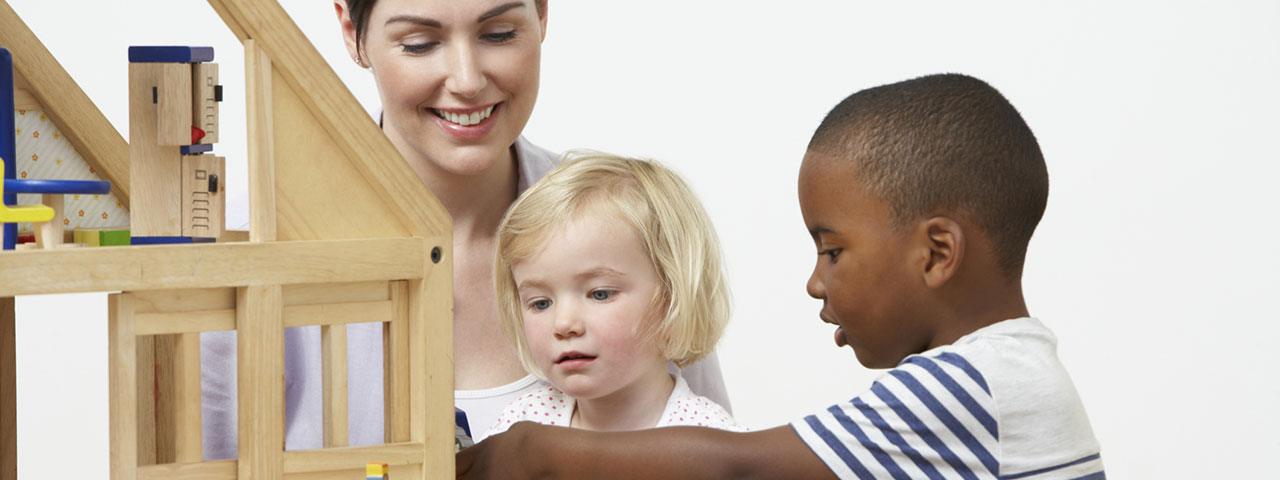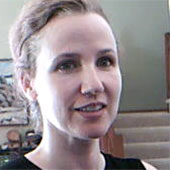Why Do Kids Need to Connect with Their Caregivers?
- Tweet

What makes one childcare option better than another? To some degree, it’s a question of money. Many of the things that benefit young children --
- Low child-to-caregiver ratios
- Teachers trained in early childhood education
- Uncrowded, stimulating classroom environments
- Access to safe, outdoor play areas free of pollutants and noise
-- come with a higher price tag.
Good childcare isn't just nice classrooms and low child-to-caregiver ratios Tweet this!But there is another factor that’s hard to reckon in dollars and cents: the quality of the relationship between children and their caregivers. Studies show that a child's emotional connection to caregivers has a big influence on the way she adapts and grows. If we want to place kids in the best possible center-based care, we should pay attention to these points.
1. Secure emotional bonds protect kids from toxic stress
In many child care centers, kids show signs of being under strain. Their bodies produce unusually high levels of stress hormone as the school day wears on. They may also experience changes that suppress the immune system, making it harder for their bodies to fight off infection.
Why the stress? The reasons aren’t clear. Perhaps kids feel overwhelmed by all those peer interactions. It’s hard work trying to get along with a room full of toddlers –especially if you’re a toddler yourself!
But whatever the precise cause, we have strong hints about the cure. Affectionate, trusting emotional attachments protect kids from the effects of toxic stress, and this applies in the classroom as well as the home. In daycare studies, preschoolers who felt secure attachments to their teachers were more likely to show normal, healthy stress hormone changes during the school day.
2. Kids who feel connected build better social skills and achieve more at school
When researchers have tracked children over time, they’ve noticed a telling pattern. Kids who feel liked and supported by their caregivers aren’t just happier and less stressed. They also develop stronger social skills, and perform better at school.
Is this merely a case of easygoing children impressing their teachers and getting ahead? It doesn’t appear to be. The observed effects are actually stronger among children at high risk for developing behavior problems. Moreover, experimental studies show we can improve children's outcomes by training caregivers to show more sensitivity and understanding. The way caregivers relate to children – their ability to communicate sympathy and positive emotions – really matters.
3. Secure attachments don't just happen -- they emerge because caregivers are sensitive, responsive, and emotionally upbeat
What can we do to provide kids with the supportive relationships they need? The key is making children feel their caregivers are attentive, caring, and trustworthy. Studies suggest that caregivers improve their interactions with kids – and help kids succeed – when they
- shape children’s behavior with positive, friendly talk -- not negative commands and threats;
- enforce fairness;
- avoid imposing unnecessary restrictions; and
- offer kids concrete advice about to handle emotions and impulses.
And what about the parent’s role?
When we talk about daycare, we don’t often focus on the importance of parents, but we should. Parents have an impact on the way their children adjust to center-based care.
For instance, when kids experience secure attachments with their parents, they are better off at school: They already know how affectionate, trusting relationships work, so they find it easier to bond with non-parental caregivers, including daycare teachers.
In addition, studies indicate that kids benefit when their parents maintain a positive relationship with their caregivers. Children may behave better in preschool – and show greater cognitive gains – when their parents get involved and communicate their concerns.
So good childcare depends on more than nice classrooms and low child-to-caregiver ratios. Personal connections -- between children, caregivers, and parents -- matter too. Can we improve these relationships by showing sensitivity, warmth, and good humor? It’s an investment worth making.

